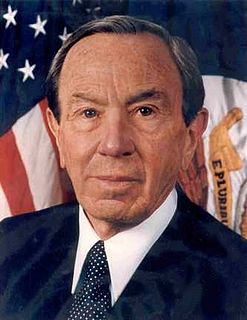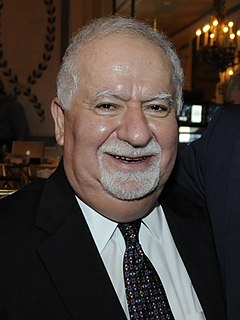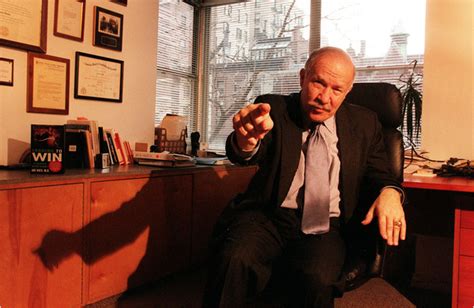A Quote by Brian Greene
Intelligence is the ability to take in information from the world and to find patterns in that information that allow you to organize your perceptions and understand the external world.
Quote Topics
Related Quotes
Well, there's a question as to what sort of information is important in the world, what sort of information can achieve reform. And there's a lot of information. So information that organizations are spending economic effort into concealing, that's a really good signal that when the information gets out, there's a hope of it doing some good...
Well, there's a question as to what sort of information is important in the world, what sort of information can achieve reform. And there's a lot of information. So information that organizations are spending economic effort into concealing, that's a really good signal that when the information gets out, there's a hope of it doing some good.
That is the future, and it is probably nearer than we think. But our primary problem as universities is not engineering that future. We must rise above the obsession with quantity of information and speed of transmission, and recognize that the key issue for us is our ability to organize this information once it has been amassed - to assimilate it, find meaning in it, and assure its survival for use by generations to come.
To be a super-trader, you'll need an edge to overcome the laws of probability and the uncertainty of the marketplace. That edge comes from information flow, the ability to correct your habits in terms of the market's characteristics, and being able to take risks, cut losses, expand your information network, ferret out ideas, and take recommendations.
If you share information widely, but you present that information in ways that fits your own view, you're actually still misrepresenting. So instead what you should do is figure out ways to build systems that allow people to experience and classify their information in ways that are meaningful for them.
I don't think we should have less information in the world. The information age has yielded great advances in medicine, agriculture, transportation and many other fields. But the problem is twofold. One, we are assaulted with more information than any one of us can handle. Two, beyond the overload, too much information often leads to bad decisions.



































